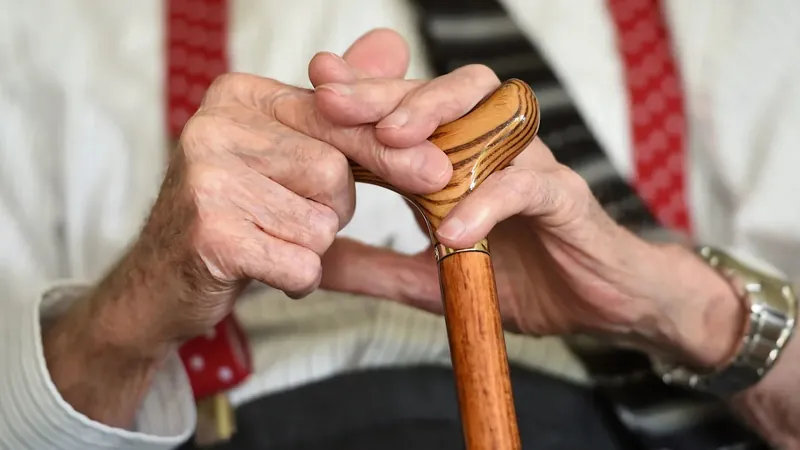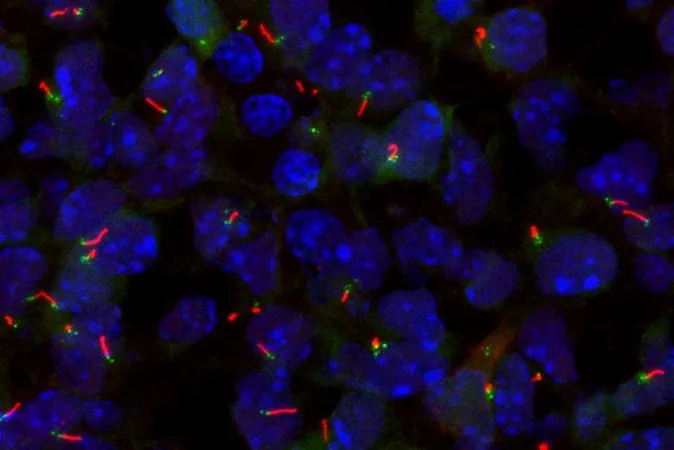
Shocking Survey: Nearly 25% of NHS Dementia Staff Feel They Can’t Deliver Optimal Care!
2025-09-15
Author: Charlotte
A startling new survey has unveiled that almost one in four healthcare professionals working in NHS dementia services feels they are unable to provide the highest level of care to patients.
This troubling statistic highlights a significant issue, as less than a third of these dedicated workers believe the current diagnostic processes meet necessary standards.
Alzheimer’s Research UK has sounded the alarm, stating that staff are "being let down by a system that isn’t keeping pace with the scale of the challenge" they face.
The Dementia Crisis: A Growing Concern
With an estimated 982,000 people living with dementia in the UK—over a third of whom lack a formal diagnosis—these findings are particularly alarming.
The poll, commissioned by Alzheimer’s Research UK, gathered feedback from more than 160 healthcare professionals, including GPs, nurses, and occupational therapists. It revealed that only 43% felt capable of providing the best possible care.
The Diagnosis Dilemma
According to the survey, a staggering 91% of respondents agreed that a formal diagnosis is beneficial to patients, yet fewer than a third think the current system delivers on this critical need.
Samantha Benham-Hermetz, executive director at Alzheimer’s Research UK, emphasized the dedication of NHS staff, stating, "They want to provide the very best care for people with dementia but are too often let down by a lagging system. With nearly a million people living with dementia, slow and unequal diagnoses are unacceptable."
Real People, Real Struggles
The survey also included over 500 responses from those affected by dementia, revealing that more than a third waited over a year before seeking help.
Almost a third received their diagnosis within six months, while many endured prolonged waiting times, including 22% who waited more than two years after consulting their GP.
One poignant statement from a family member supporting their mother’s struggle for a diagnosis captured the heartbreak: "It’s devastating watching what is happening with no answers, no support. We desperately need the reassurance of a diagnosis to at least know what we are dealing with."
A Call to Action: Rethinking Dementia Diagnosis
This research was part of Alzheimer’s Research UK’s illuminating report 'Seeing the Unseen: Rethinking Dementia Diagnosis.' In June, the charity also launched the Dementia Unseen campaign, advocating for quicker GP referrals and faster diagnosis timelines.
Benham-Hermetz reinforced this message, insisting, "Dementia diagnosis should be a right, not a waiting game."
Hope on the Horizon: Revolutionary Blood Test Trials
In a glimmer of hope, British patients are now participating in a groundbreaking trial of a new blood test for Alzheimer’s.
This study plans to recruit 1,100 individuals from various backgrounds to evaluate the test's effectiveness within the NHS, with experts hopeful for results in just three years.
Government’s Pledge: A Commitment to Change
A spokesperson from the Department of Health and Social Care reassured that efforts are underway to improve care quality for dementia patients with their Plan for Change. They remain dedicated to increasing diagnosis rates and providing access to appropriate treatments as outlined in their 10 Year Health Plan.
As the nation grapples with the complex challenges of dementia care, the time for action is now—ensuring every individual receives the compassionate, timely care they deserve.









 Brasil (PT)
Brasil (PT)
 Canada (EN)
Canada (EN)
 Chile (ES)
Chile (ES)
 Česko (CS)
Česko (CS)
 대한민국 (KO)
대한민국 (KO)
 España (ES)
España (ES)
 France (FR)
France (FR)
 Hong Kong (EN)
Hong Kong (EN)
 Italia (IT)
Italia (IT)
 日本 (JA)
日本 (JA)
 Magyarország (HU)
Magyarország (HU)
 Norge (NO)
Norge (NO)
 Polska (PL)
Polska (PL)
 Schweiz (DE)
Schweiz (DE)
 Singapore (EN)
Singapore (EN)
 Sverige (SV)
Sverige (SV)
 Suomi (FI)
Suomi (FI)
 Türkiye (TR)
Türkiye (TR)
 الإمارات العربية المتحدة (AR)
الإمارات العربية المتحدة (AR)